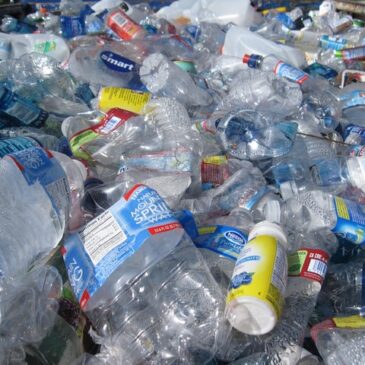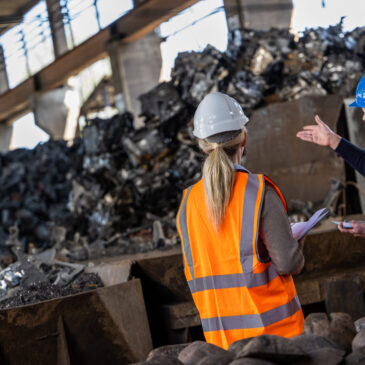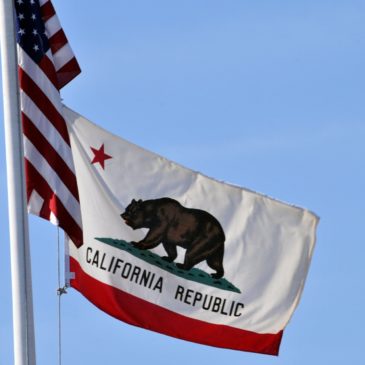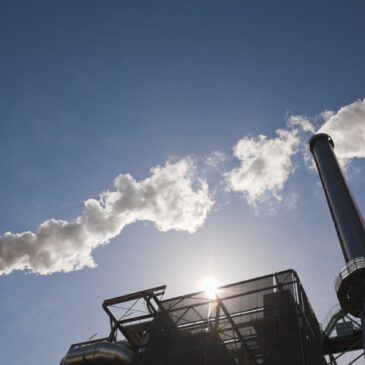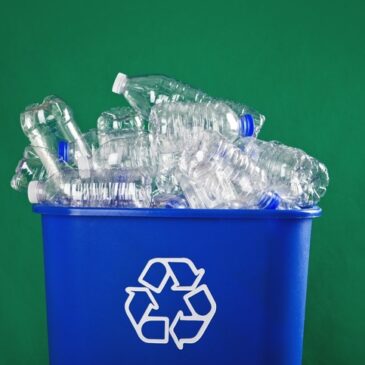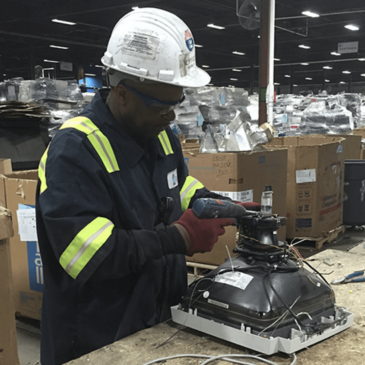Waste to Wealth Resources – Search Results
Return to Waste to Wealth home page
Page 3 of 53
Minnesota – Waste Generator Surcharges
Minnesota exhibits a unique example of a waste surcharge, where fees are collected at the generator level instead of at the disposal site. First introduced in 1997, Minnesota’s solid waste surcharges, called the Solid Waste Management Taxes, target household, commercial, and industrial waste generators. These taxes intend to incentivize participation in recycling and composting programs.… Read More
Santa Clara County, California – Waste Disposal Surcharges
Santa Clara County’s commitment to achieving zero waste is exemplified by its Sustainability Master Plan, which aims to achieve a 75% reduction in disposed organic waste by 2025 (compared to 2014 levels), in addition to a 25% reduction from 2019 levels of daily per-capita waste generation by 2030. One way that the County supports its waste reduction efforts is through surcharges on waste disposal.… Read More
Alameda County, California – Waste Disposal Surcharges
Since 1990, Alameda County has maintained strong momentum of achievement in waste diversion. Its robust system of waste management and diversion has enabled the county to achieve a 67% waste diversion rate, as of 2018.… Read More
Baltimore Youth Organizer Carlos Sanchez Points Out Pitfalls of City Council Plan
Carlos Sanchez, a Baltimore high-school student and youth organizer for Free Your Voice and Fair Development Land Trust, responded to the announcement of a new Zero Waste Commission for the City with a thought-provoking op/ed in Baltimore Brew. He notes that a plan already developed by the community – with ambitious goals and revenue sources – will do more to end health-harming air pollution than the entity the City Council is proposing.… Read More
Federal REDUCE Act Would Support Secondary Markets for Plastics
The REDUCE Act would establish a new incentive to recycle plastic and to address plastic waste in our ecosystems by imposing a 20-cent-per-pound fee on the sale of virgin plastic used in single-use products.… Read More
Webinar: Investing in Zero Waste Infrastructure
ILSR’s Investing in Zero Waste Infrastructure webinar will take place January 18th. … Read More
Indiana – Waste Disposal Surcharge
Established in 1996, Indiana charges a state-wide solid waste disposal fee of $0.50 per ton on solid waste disposal at final disposal facilities in Indiana. The revenue is deposited equally into the Solid Waste Management Fund and the Indiana Recycling Promotion and Assistance Fund.… Read More
New Jersey – Waste Disposal Surcharge
In 1987, New Jersey became the second state in the country to make recycling mandatory. The state demonstrated its renewed commitment to waste diversion with the passage of the Recycling Enhancement Act (REA) in 2008, which imposed a recycling tax of $3 per ton of solid waste disposed at or transferred to a solid waste facility, including transfer to out-of-state facilities.… Read More
Wisconsin – Waste Disposal Surcharges
Wisconsin established its “State solid waste reduction, reuse, recycling, composting, and resource recovery policy” in 1989 with Act 335, now codified in section 287.05 of the Wisconsin Statutes. This policy recognizes that waste reduction and diversion are in the best interest of the state to conserve resources, preserve the environment, and protect public health. The policy established a hierarchical preference of solid waste management options… Read More
Pennsylvania – Waste Disposal Surcharges
Pennsylvania is a pioneer in using State-imposed surcharges on top of existing tipping fees to fund state and municipal recycling and local land conservation programs. Revenues come from a $6.25-per-ton surcharge on top of municipal waste disposal fees. … Read More
Waste Surcharges to Fund Composting and More
One funding mechanism with a proven track record of raising funds to reduce and recycle waste is the establishment of a per-ton surcharge on waste landfilled or incinerated. A waste disposal surcharge is typically a fee added to the per-ton tipping fees charged for waste disposal at waste disposal sites such as landfills, incinerators, and transfer stations. They can be charged to waste haulers or even at the generator-level such that households and businesses are taxed directly based on waste generated.… Read More
Democracy and Recycling in California
Dan Knapp responds to PBS Newshour commentator David Brooks’ recent criticism of California’s system of direct democracy: “We would not exist today if not for direct democracy” and “Material recovery has morphed in Berkeley into a $40 to $50 million-dollar set of material recovery enterprises.”… Read More
Garbage Incineration Update for October 2021
From domestic cities like Ocean City, Maryland to Salem, Oregon and international locations from Ontario, Canada and the United Kingdom, we provide updates on garbage incineration efforts around the globe.… Read More
A New Way Forward for Packaging and “Transitional EPR”
Kristine Kubat from Recycle Hawaii is a front line Zero Waste activist in the state. In this article from Resource Recycling Magazine, she presents her thoughts on EPR legislation and introduces the concept of “transitional EPR.… Read More
RecycleForce Teaches Recycling Skills to Formerly Incarcerated People
The Indianapolis non-profit has employed and trained more than 2,000 individuals returning from incarceration in managing hazardous materials in electronic scrap, litter abatement, factory clean outs, and other areas.… Read More





